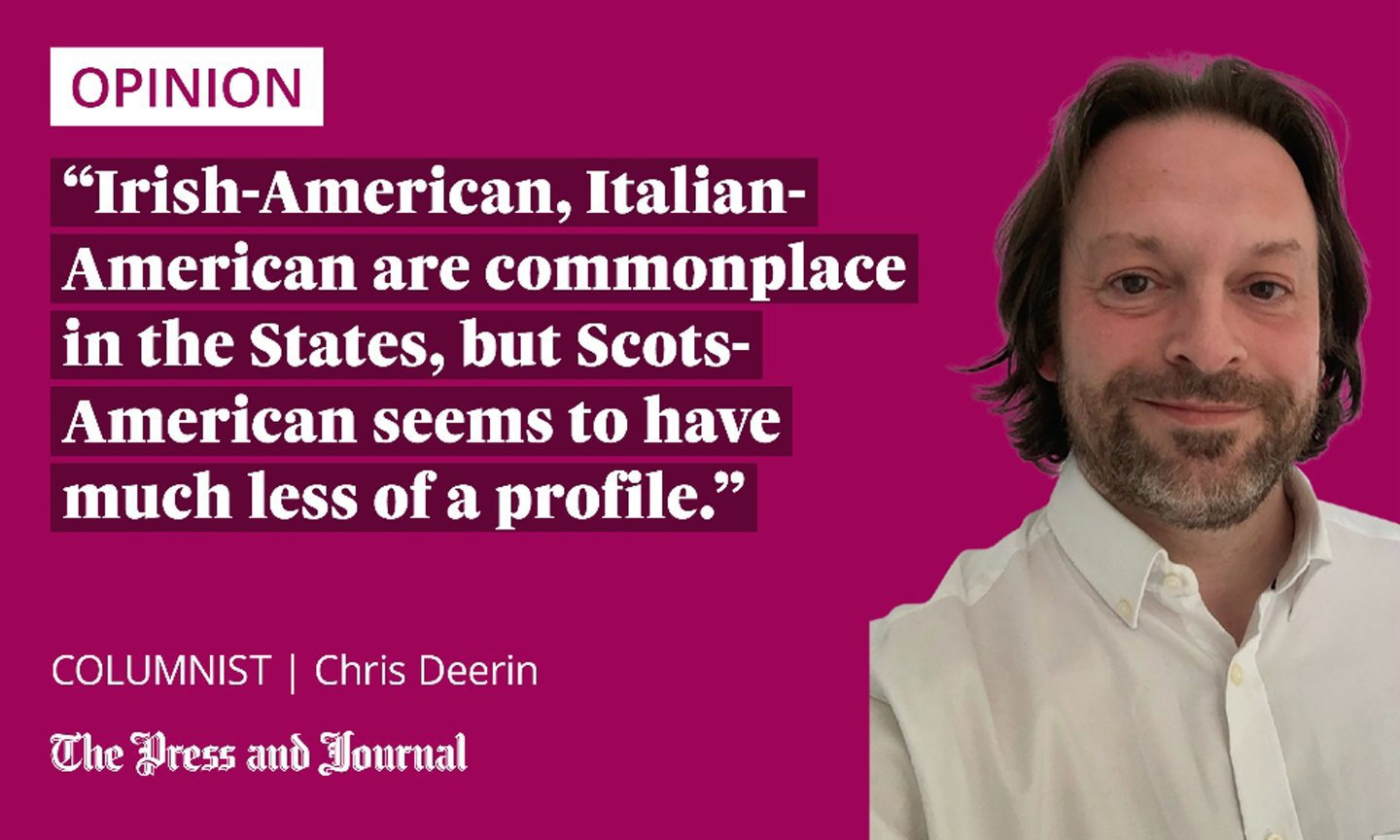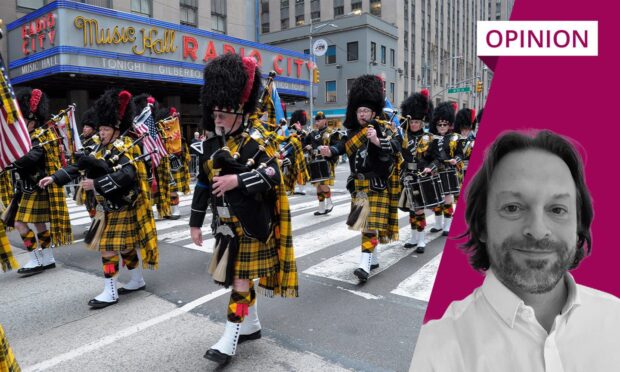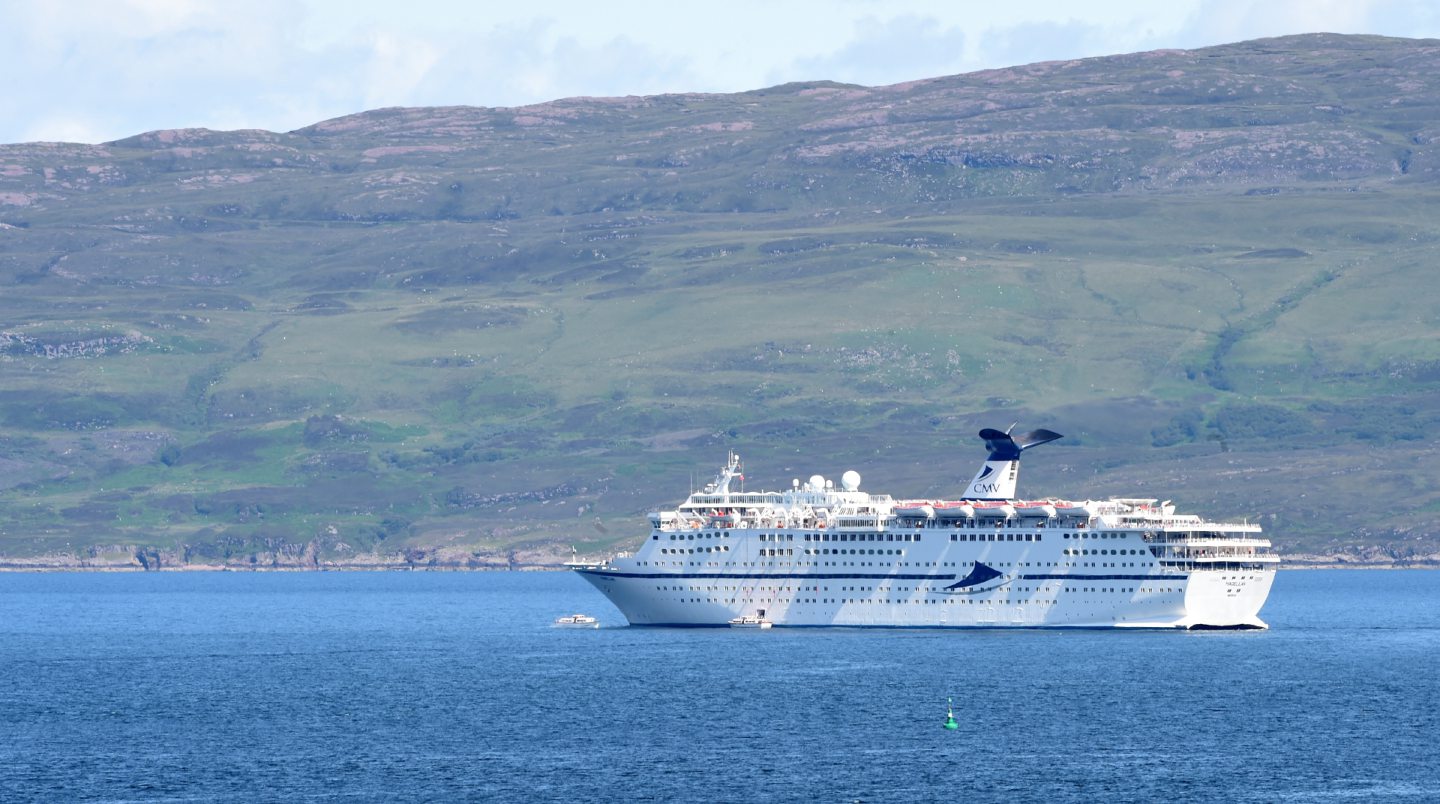This odd existence of mine has its occasional eccentric moments, and so it was I recently found myself cruising around the Scottish islands, talking to a group of American tourists about independence.
The sun unexpectedly blazed and the seas were disturbingly calm. My audience was mostly elderly, and largely made up of retired US government officials and academics. They were a bright, highly educated bunch, which didn’t make me any less anxious about the lectures.
What to do? Well, I sang to them. I was describing how Scotland’s sense of identity is, in part, shaped by its long and often snippy relationship with England. There seemed no way out of giving them a blast of Flower of Scotland – even our national anthem is a dig at the English – and so I took a deep breath and launched into it.
Now, if I were an American tourist who had forked out many thousands of pounds to go on an international cruise, I’m not sure I’d have been delighted that the entertainment amounted to Chris Deerin screeching at me mournfully, a capella and mildly off-key, at 9.30 in the morning. But, much to my surprise, they seemed to dig it – I even got a round of applause. Perhaps their hearing aids were turned off.
They were fascinated by Scotland, both its history and its current state of being. They gasped at the misty spookiness of Iona and beamed at the beauty of Skye. Those from Texas wanted to know about our oil industry and our increasingly uneasy relationship with it.
There was fascination with the SNP’s opposition to nuclear power and weapons – one old chap told me he had been dispatched “by the state department” in 1980 to meet nationalist leaders and discuss the future of the Holy Loch, where the US kept many of its submarines, in the event of independence. Definitely CIA.
And some asked about why Scotland didn’t make more of its American diaspora. I was glad they did, because that was on my mind, too.
 Tartan Day, and its parade through New York, has become a key date in the calendar for our politicians. But few of the tourists had heard of it. They were all aware of St Patrick’s Day and the strong links between Ireland and its foreign descendants.
Tartan Day, and its parade through New York, has become a key date in the calendar for our politicians. But few of the tourists had heard of it. They were all aware of St Patrick’s Day and the strong links between Ireland and its foreign descendants.
Irish-American, Italian-American and other composite identities are commonplace in the States, but Scots-American seems to have much less of a profile. We certainly don’t talk about it often on this side of the Atlantic.
There are an estimated 25 million people in America of Scottish descent – around five times the population of Scotland itself. Some of them feel the pull of the old land very strongly. They come in their droves every summer.
There are hundreds of annual Highland games held across the US every year. One retired biologist told me he now made his living touring those events, where he played Gaelic airs on his harp. Scottish descendants were among the Founding Fathers, and helped author the US constitution.
This should be what you might call a captive audience. Today, as in the past, there are Americans of Scottish descent in positions of authority and success across that great country. Do we know who they are? Do we hassle them, politely? The Irish certainly know their equivalents, and milk those links for all they’re worth.
It’s not just about sentiment and emotion, it’s also about economics. Experts estimate that US assets in Ireland amount to $2 trillion, over four times the value of US assets in China. In 2020, research and development spending in Ireland by US affiliates reached $4 billion. These companies employ more than 200,000 people.
Much of this will, of course, be due to Ireland’s favourable tax climate. But the close personal links, and the strenuous efforts that go into maintaining them, don’t hurt.
Re-energise our low-energy, low-impact approach
Scotland doesn’t do badly when it comes to American investment – our universities have particularly tight bonds – but we’re nowhere near the Irish scale. And we really haven’t got our outreach efforts right.
You may have heard of the GlobalScot programme. It was set up in 2001, and is meant to help our businesses and entrepreneurs benefit from “the highly valuable connections and friends Scotland has around the world”.
I know quite a few of those who have been appointed GlobalScots – the equivalent of business ambassadors – and I’ve yet to meet one who finds the thing worthwhile. It doesn’t help that the programme is civil service-led and run, which ensures that it is entangled in the usual bureaucracy. Not exactly a great shop window.
We certainly have the business chops, and the charismatic and innovative individuals, to pull it off
We could replace this low-energy, low-impact approach with something much more dynamic, and that is driven by the private sector. This would be closer to the Irish model, where business speaks to business more directly.
As we look for ways to grow our creaking economy, it’s definitely worth exploring. We certainly have the business chops, and the charismatic and innovative individuals, to pull it off.
America loves Scotland, but could love it more. Let’s help them do so – and, if necessary, I’m ready to sing.
Chris Deerin is a leading journalist and commentator who heads independent, non-party think tank, Reform Scotland


Conversation